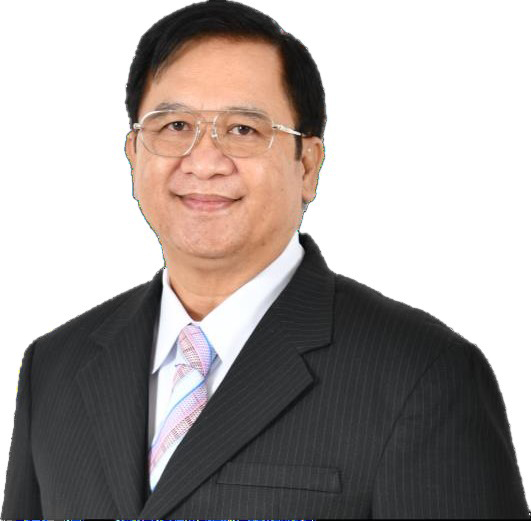'Choklat' boys: The PH Humanitarian Support Mission to East Timor (PhilHSMET)
BARRACKS AND STRATEGY
GUEST COLUMNIST

(Part 1)
On the 25th anniversary of the PhilHSMET, I keep thinking of how this mission changed the lives and careers of those who joined this contingent. We embarked on a journey that went beyond a regular military mission, honoring the promise of then-President Joseph Ejercito Estrada (PJEE) to send Filipino troops to assist East Timor in 1999. In this journey, we were not simply soldiers but agents of change, entering a nation torn apart by tragedy.
The journey began when the troops for PhilHSMET were hastily selected. As the deployment day approached, then Cpt. Monico E. Abang was astonished to learn that he had been included. He recalled after telling his wife, “She was in deep shock and worried by the sudden events. Nevertheless, I was able to convince her that this is the nature of my job as a soldier—to follow legal orders.” Meanwhile, then Sgt. Roland L. Madrid volunteered for this assignment without advising his wife, who cried upon discovering his decision, fearing the dangers he might face.” Cpt. Abang and Sgt. Madrid flew to Australia on Sept. 18, 1998, a day after they were selected.
Equally, the second group, including myself, faced the same fears. Then Ssg. Arcadio R. Agustin thought, “Papaano na ang aking pamilya? Aalis ako na hindi man lang nakapagpaalam.” Yet, he hoped they would understand his obligation to serve the nation. As we gathered on the send-off spot on Sept. 25, then Ssg. Armando S. Decena sensed the stress in the air, heightened by the sight of soldiers’ families sobbing, unsure whether their loved ones would return. The holy rosary given that day provided solace in the face of our common concern.
Our operation officially started on Sept. 18, 1999, with an advance team of 23 officers and 99 enlisted personnel led by Col. Felix L. Cabreros, our mission commander. After arriving in Darwin, Australia, PhilHSMET promptly joined the International Force for East Timor (Interfet). On Sept. 24, they sailed to Dili, East Timor, and then moved to Baucau, a former district on the country’s northern coast. On Sept. 27, the second batch, which included myself, merged with the advance party in Baucau.
When we arrived, East Timor was in terrible condition. The country had been through a fierce fight for independence, uprooting residents and leaving structures in ashes. The initial mission of PhilHSMET is to establish a secure environment in the vicinity of Baucau to provide humanitarian support in coordination with non-government organizations (NGOs).
Our time in Baucau is one of the most profound experiences. When we arrived, the tension was apparent. We took on the arduous task of reviving the local hospital, providing medical and dental care, and securing the airport to ensure that aid could come. These efforts were not limited to physical rehabilitation; they also involved providing the Baucau people with the resources they required to reclaim their lives. Interfet relocated us to Manatuto in October, a district in the country’s center, as our new operational base. Manatuto was particularly devastated because it was the birthplace of the majority of the Timorese independence movement’s key leaders.
We faced hardships during our first two months of deployment, including a lack of essentials, food confined to Meal-Ready-to-Eat- (MRE) rations, and difficult living conditions. Despite this, we created a unique approach to connect with the locals. We began sharing our chocolates, which were part of our MRE rations with the youngsters during our patrols and movements. Eventually, they would run towards us, chanting “Choklat! Choklat!” and earning us the nickname the “Choklat boys.” This seeming gesture allowed us to reach out to the rest of the people and create trust.
Focusing on the mission, PhilHSMET devised a strategy of networking, linkaging, and collaboration. By collaborating with NGOs, United Nations (UN) agencies, and religious institutions, we acquired access to key information and resources, including medicines, food, and construction supplies, which were critical to our humanitarian efforts. As PhilHSMET’s civil-military staff officer and to help implement this strategy, I attended daily meetings held by the UN Administrator of Manatuto that were also attended by the NGOs and UN agencies. There, we discussed how to apply our pooled knowledge and resources. This endeavor empowered us to decide on projects that served local communities, which was vital to the mission’s overall success.
Looking back, I realize how much PhilHSMET, being the first foreign deployment by the Armed Forces of the Philippines after a long time, shaped the future of Philippine peacekeeping missions. We set a high standard, showing that our country could contribute significantly to global peace and security—not just through force, but through compassion, professionalism, and a deep commitment to humanitarian principles.
(Lt. Gen. Aurelio B. Baladad (Ret) served as the 8th commander of the Eastern Mindanao Command, the 32nd commander of the 3rd Infantry (Spearhead) Division, and the former deputy chief of staff for Operations, J3 of the AFP. He is now the VP for cooperative planning and marketing of PAFCPIC, a cooperative serving the active and retired AFP personnel.)